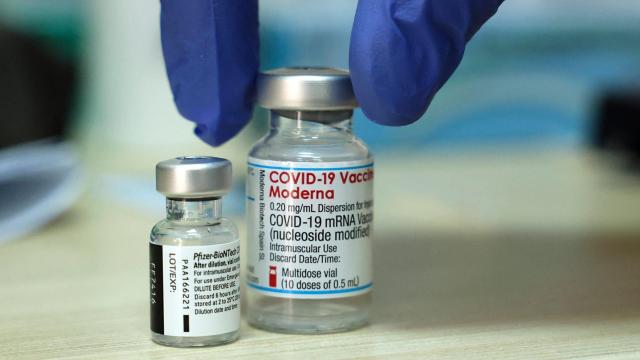On Thursday afternoon, experts assembled by the Food and Drug Administration recommended boosters for older and high-risk Americans who originally got the Moderna covid-19 vaccine. The unanimous vote will pave the way for an expected authorization of the booster by the FDA and Centres for Disease Control and Prevention. Unlike the recently sanctioned booster for the Pfizer/BioNTech vaccine, however, Moderna’s booster will come as a half-dose.
Outside experts with the FDA’s vaccine advisory committee met Thursday and are meeting again tomorrow to hash out lingering questions about booster doses for Americans. Though a Pfizer booster dose was authorised last month for people over 65 and high-risk individuals, it only covered those who originally took the Pfizer vaccine.
Thursday’s meeting was all about the Moderna vaccine. That shot is based on the same mRNA technology as Pfizer’s, and they seem to have a similar level of effectiveness in preventing death and illness from the coronavirus. But there’s been less real-world data collected on the Moderna vaccine than Pfizer’s, despite it being authorised in the U.S. only a week after Pfizer’s shot last winter (in August this year, Pfizer’s vaccine became the first to win full FDA approval).
The panel experts were concerned about a lack of real-world data supporting a Moderna booster shot, compared to the data available on Pfizer (in Israel, Pfizer boosters have been available for months). Moderna did present data from a small booster dose study, the New York Times reported, which found that people’s antibody levels to the coronavirus rose after getting a booster. But the experts also noted the many similarities between the two vaccines, and, given the data to date as well as Pfizer’s earlier go-ahead, they concluded that there was no rationale for rejecting Moderna’s application.
“From a pragmatic point of view,” Stanley Perlman, a doctor with University of Iowa, told the New York Times, “because we’ve already approved it for Pfizer, I don’t see how we can possibly not approve it for Moderna.”
There are some subtle but possibly important differences between the two vaccines, though. Unlike Pfizer, Moderna didn’t try to argue that a booster would be needed to prevent the waning of immunity against severe illness and hospitalisation. Some data has suggested that the Moderna vaccine remains more potent over time, possibly due to the higher doses it uses. It’s this higher dose that also led Moderna to cut the dose in half for the booster. There’s mixed evidence on whether vaccine-provided immunity to covid-19 has significantly declined in the general public, though there is a stronger case for waning now in older people who got shots last winter.
The recommendations of these advisory committees don’t automatically become policy, though the FDA rarely disagrees with them. So for now, it’s likely that boosters of the mRNA vaccines will remain prioritised for people over 65 and high-risk groups, such as people with compromised immune systems and healthcare workers who might be more frequently exposed to the virus. But it’s still unclear what the verdict tomorrow will be for the J&J vaccine, which has shown less effectiveness in general as a single dose. Panel experts will not only discuss whether a J&J booster is needed but whether those booster doses should be given two months or six months after the first.
